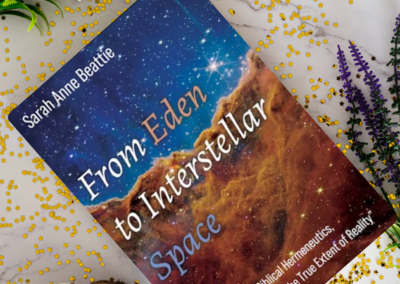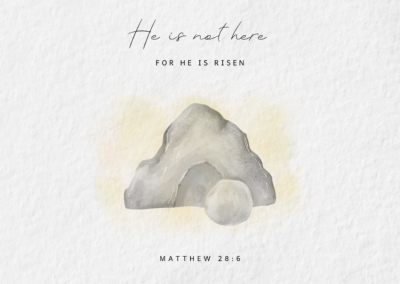by Emma Belcher

Recently, my six-year-old daughter saw a picture of the typical (but erroneous) monkey to man evolution transition. Her comment was something like, “oh so it started like a monkey, then went to there, and then to us.” My initial response could be described as (thankfully not to her) steam and bewilderment coming out of my ears. This comment triggered all the right buttons I have experienced over the years with friends and family who just can’t accept “that we came from monkeys”. I literally found myself saying, “we did not come from monkeys, that’s not how evolution works (and it was actually chimpanzees…)”. I’m ashamed to say I think I did a very poor job of explaining evolution to her. I should have said, that all the species now alive today have evolved on their own path, and the primates, including us, all have a common ancestor.
But this interaction got me thinking, firstly, how on earth does one explain evolutionary theory to someone who can barely read, and secondly, how do I make sure she doesn’t have the experience I had growing up? My experience with evolution, I can imagine, is similar to many others growing up in conservative Christian homes. Like those around me, I held a relatively literal interpretation of Genesis. As I entered University, I believed there was some room for metaphor and artistic license, but the overall picture was a pretty standard creationist view. The only place I encountered evolutionary theory was in senior biology at secondary school, and in my mind, I saw that very much as a ‘theory’ and that was that. I was surrounded by people at home and my church community who thought like me, so I never encountered any further problems.
I began my degree in biology and the topic of evolution seemed to be all around me. It made me realize that I really didn’t have a clue about the actual science of evolution. I clearly remember thinking, ‘right, that’s enough! I will simply study this and put an end to this whole evolution debacle’ and changed my major to Anthropological Sciences. Now, I can’t remember the exact moment when ‘wow’ dawned on me, but I remember the feeling like it was yesterday. I experienced such a sense of wonder at what I was learning about the history of the world, and the processes that lead to all that is around us, including ourselves.
But when it comes to children, most explanations of evolutionary concepts are usually diluted to the point of inaccuracy. So, how do we, in a practical way explain the complexity of evolution to children? Because of my own background I have often felt the pressure to make sure I ‘get this right’. I don’t want my children to have to struggle with the cognitive dissonance I did, but I want them to have the courage to ask questions, to question what they are told and to know that whatever they do encounter, God has deemed this world to be ‘good’.
Every living thing on earth is related. The way children wiggle and breathe, grab objects or give a goodnight kiss, can aid in them seeing their ancient connection with fish, reptiles, mammals and apes. And for very young children, this is probably enough. As mine get older, I can imagine I will explain evolution along the lines of animals changing over time in order to survive where they live. So, for example, fish evolved to have gills because the need to be able to breathe underwater; other animals evolved to have sharp teeth to be able to eat, or to have scales to protect them from being eaten. A closer relative to us, a long time ago, didn’t evolve to get these things, however, instead we got really smart brains and this is what helped to keep us safe, instead of having claws and scales. And instead of walking on four legs, we evolved to walk on two so we could free our hands to build houses and be make peanut butter sandwiches. I’m sure I will refine this as my children grow and develop the capacity to hold more complex explanations, and the opportunity comes up more than you’d think.
Now that I am aware, I notice opportunities often present themselves. My children love dogs, it’s unusual for us to pass any dog without stopping to get the low down on everything about that dog! Just the simple question of ‘why do dogs, even though they’re the same species, look so different?’ This leads to many questions, which naturally happen when interacting with children, ‘can different dogs have babies together, what would they look like?’ and so on.
It is in these conversation that I plan for my children to be better equipped, when dealing with the challenges they will face. I cannot shield or protect them from these, and no doubt they will come across creationism or theories about where people came from that don’t align with evolution. But if we instil a curiosity in our children, to keep asking ‘why’ and look at what they’re presented with, they will make good choices. Just because they have been told something, doesn’t mean they must accept it, especially if it doesn’t sit right with them. Our present understanding of evolution has changed enormously in the last 70 years, and I can imagine even our current view of evolution will change somewhat in the next 50 to 100 years as we keep asking questions of the evidence we find. Like many elements in life, this isn’t black and white, there is a balance to the evidence and we come to this from our own unique histories.
My daughter can respond to her friends and say, ‘that’s not what I believe because of…’. My hope is that she will know the importance of weighing the evidence, of asking questions, that it’s ok to disagree, and equally, to be wrong and refine what she once thought. This good world was created by God, and whatever we encounter is no surprise to God, even if it’s not always comfortable for us (She loves nature shows, but I often find myself fast-forwarding when the hunting scenes come on!). It is ok to live with this tension.
We are intending to hold a seminar/discussion on this topic in Feb/March next year. Please contact us at hoggard.n@gmail.com if you are interested in participating.



